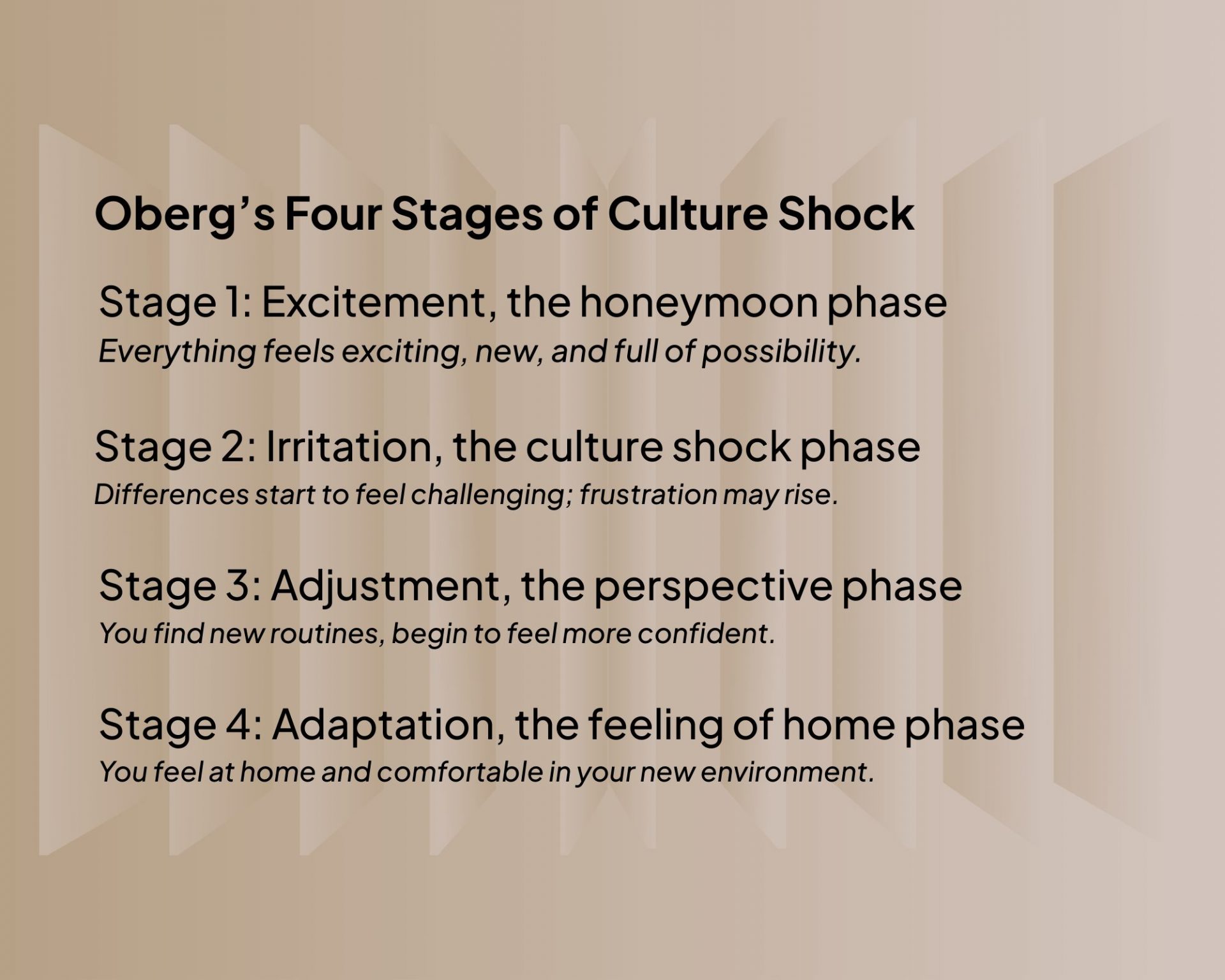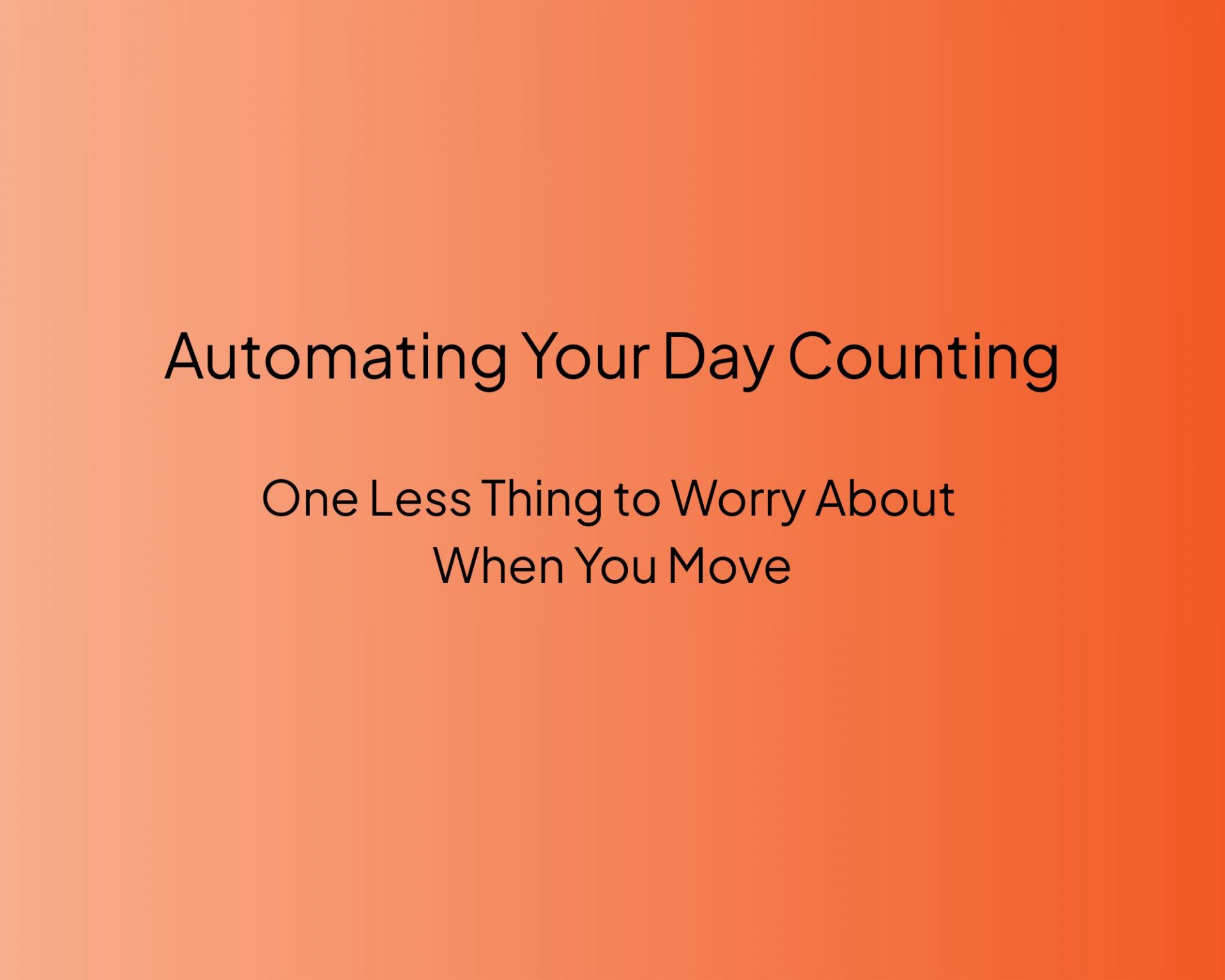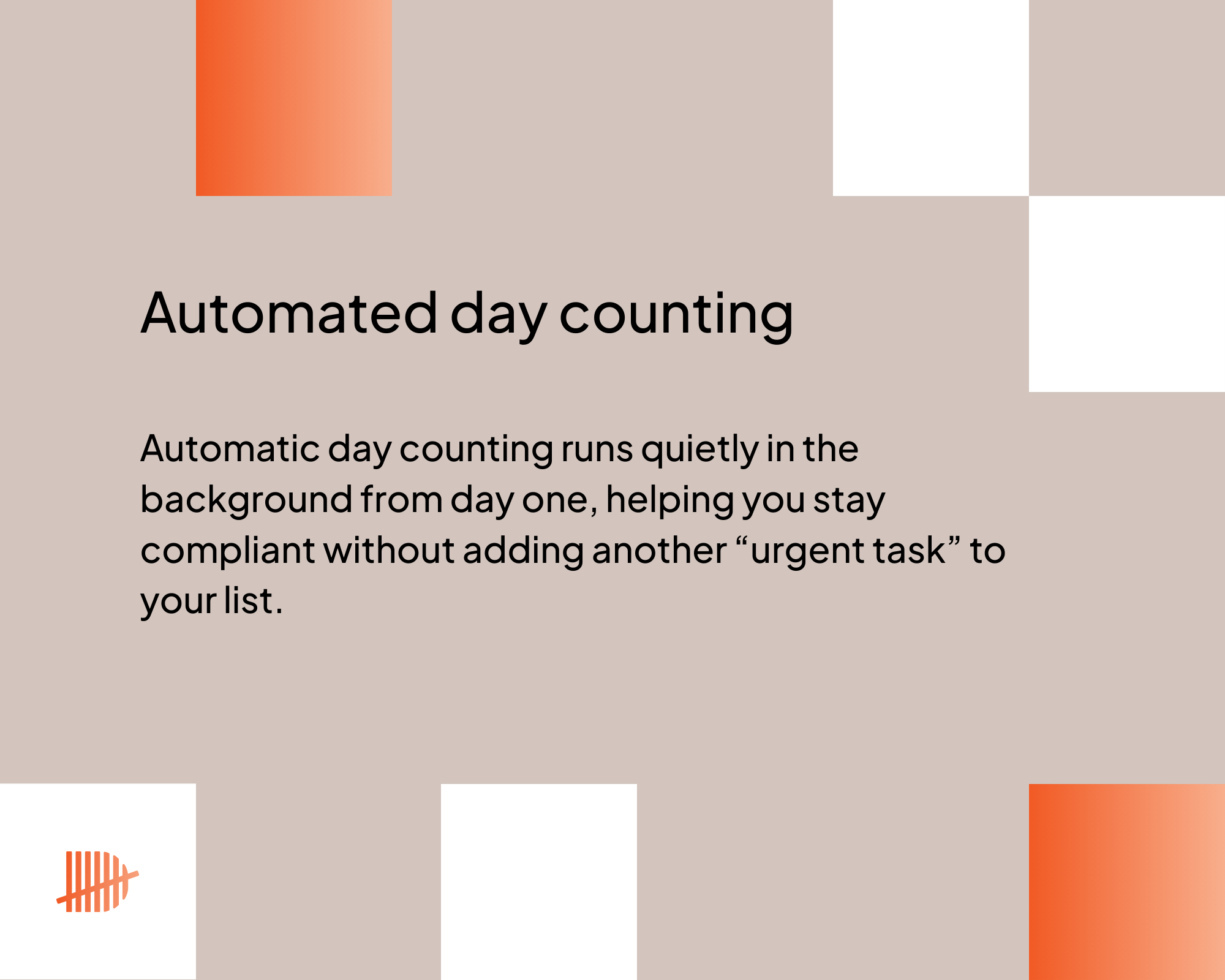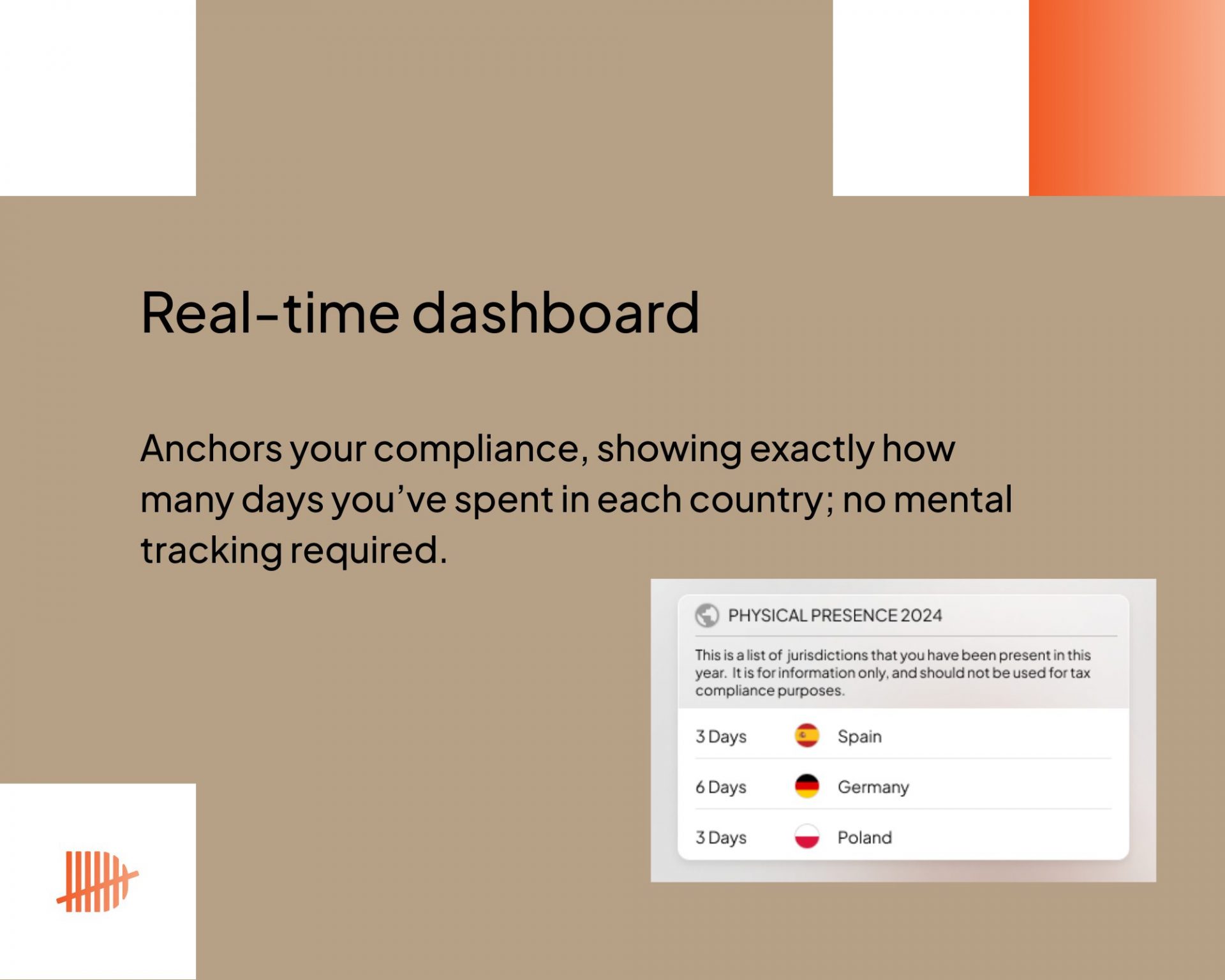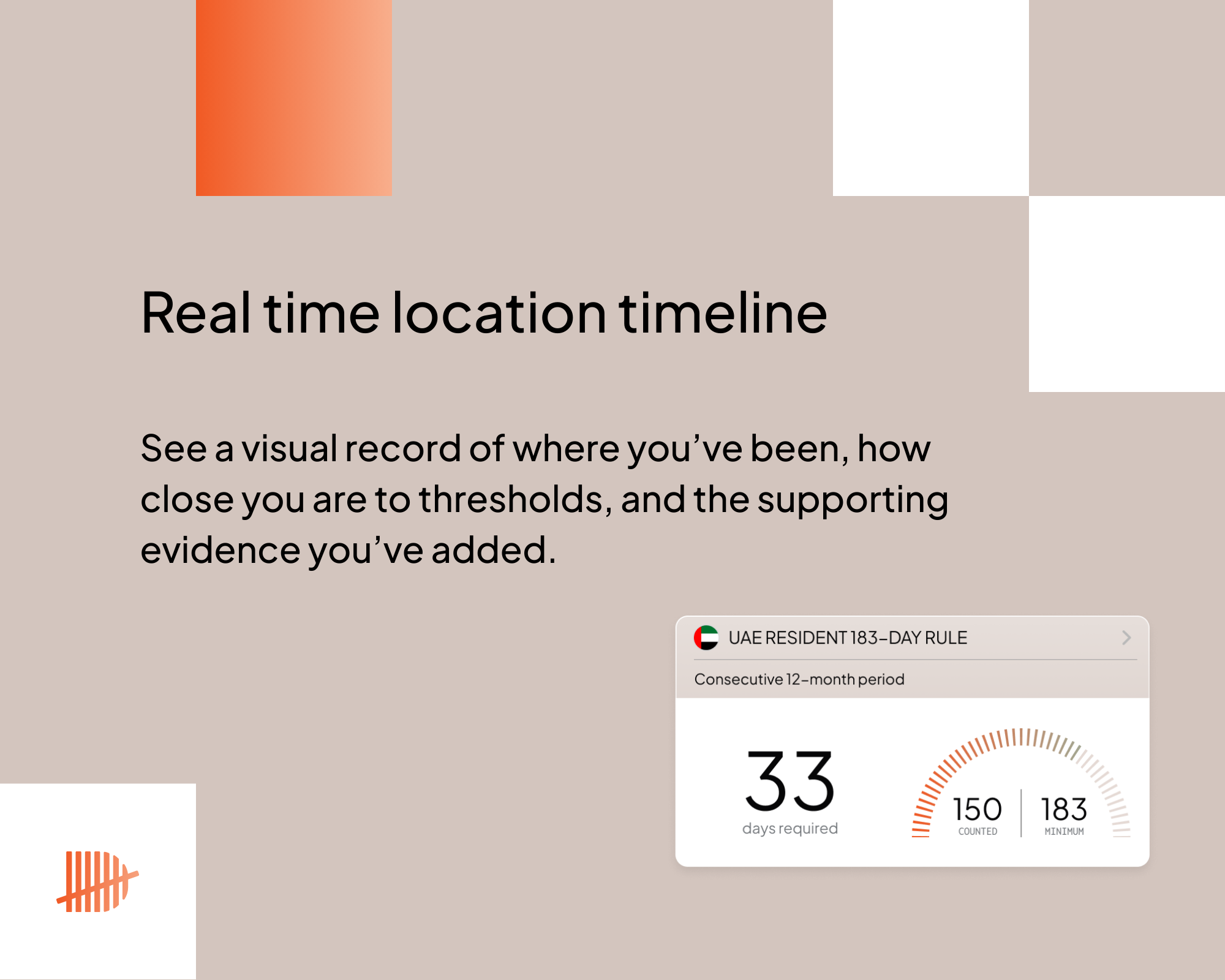Moving to a new country involves a significant amount of administrative work. This administrative work can add to the mental strain you feel. And when you have to juggle so many different things, it’s easy to overlook and put off the seemingly inconsequential tasks — like day counting.
Your tax advisor has most likely warned about those risks and said that moving out doesn’t just magically end your potential tax liabilities. The difference between being tax-resident in one country versus another can mean tens or hundreds of thousands in obligations. And most often than not, knowing the exact day count you spend in any tax jurisdiction is part of what makes you a (non-)resident.
But keeping a strong, defensible record of your day counts amidst a move isn’t easy, especially if you rely solely on manual methods like spreadsheets. Jetting between two countries amid a move can blur your day counts and make it hard to remember just how many days you’ve spent and where.
- Flights get rescheduled.
- You spend a few extra days visiting family.
- You’re staying temporarily in one country while waiting for property to close in another.
Day counting thus becomes yet another item on that to-do list. It’s a cognitive burden that forces you to pay attention to it. Either it takes you time and effort in terms of managing the day counting and evidence, or it nags away in the back of your mind because you’re putting it off, and you know the consequences of non-compliance.
A Client Story: Moving from the UK to the UAE
The above is precisely what happened to one of our clients. They were preparing to relocate from the UK to the UAE. Like many HNWIs making this move, they were juggling intense logistics, dealing with property, managing their family, coordinating advisors, all while trying to anticipate the legal and financial implications of their new life.
When their advisor mentioned Daysium to them, they were instantly sold on the idea. They didn’t just resonate with the ability to solve tax complexities. They understood the emotional release that came from knowing that their day counting was quietly taken care of. They had one less emotionally taxing thing to think about.

